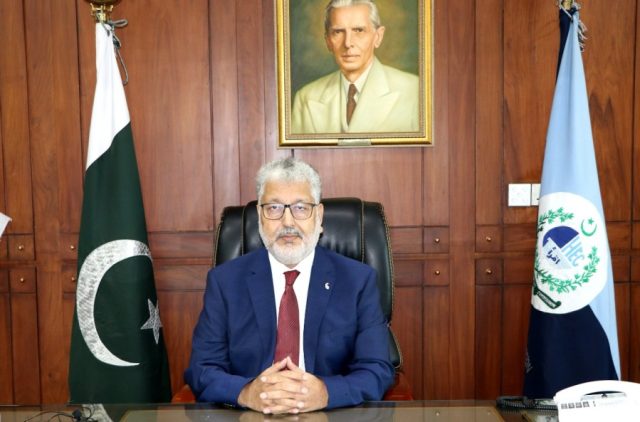ISLAMABAD, Thursday, July 3, 2025 (WNP): Chairman of the Higher Education Commission (HEC), Dr. Mukhtar Ahmed, on Thursday reaffirmed the government’s resolve to transform Pakistan’s higher education sector in line with Vision 2047, emphasizing accessibility, digital integration, and institutional development as core priorities.
Addressing a press briefing, Dr. Ahmed said the government is working to ensure modern educational facilities for 1.5 million youth nationwide. A cornerstone of this initiative is the P-10 project, which aims to elevate the quality of education by focusing on the country’s top ten universities. In its initial phase, 100 smart classrooms have been established, with another 200 currently under development.
Since HEC’s inception in 2001, Pakistan’s higher education landscape has witnessed remarkable growth, he noted. The number of universities has surged from 59 to 370, while the student population has increased from 3.5 million to over 8.5 million. However, Dr. Ahmed stressed that this expansion remains inadequate in the face of Pakistan’s growing youth demographic.
“Our goal is to further increase access, particularly in underdeveloped regions,” he said, adding that a significant milestone is the rising participation of women in higher education—currently at 48% of the total student body—an achievement he termed “a surprise to the world.”
Highlighting the pivotal role of technology, Dr. Ahmed underscored initiatives such as High-Performance Computing (HPC) and cloud-based learning, which enable remote teaching and learning—an essential feature during emergencies. “We are reducing dependency on costly computing infrastructure and making education more inclusive and resilient,” he added.
Despite these strides, challenges persist. Only 28% of university faculty currently hold PhDs—an improvement from 24%, yet still a gap that needs addressing. Dr. Ahmed pointed to ongoing efforts, including overseas scholarships, with more than 6,000 students sent abroad to strengthen academic capacity.
The HEC chairman also acknowledged resistance from some university Vice Chancellors over the implementation of the Higher Education Data Repository (HEDR), a digital governance initiative aimed at streamlining academic oversight.
On industry-academic collaboration, Dr. Ahmed said two Pakistani universities have recently earned international recognition for producing globally competitive graduates. He further cited the $400 million World Bank-funded Higher Education Development Project (HEDP) as a critical support mechanism, backing research, innovation, faculty development, and infrastructure upgrades.
Concluding his remarks, Dr. Ahmed reiterated HEC’s commitment to uplifting backward regions and focusing on quality over quantity in higher education. “Instead of expanding numbers alone, we are dedicated to improving governance, digital access, and the overall learning environment across Pakistan,” he affirmed.




